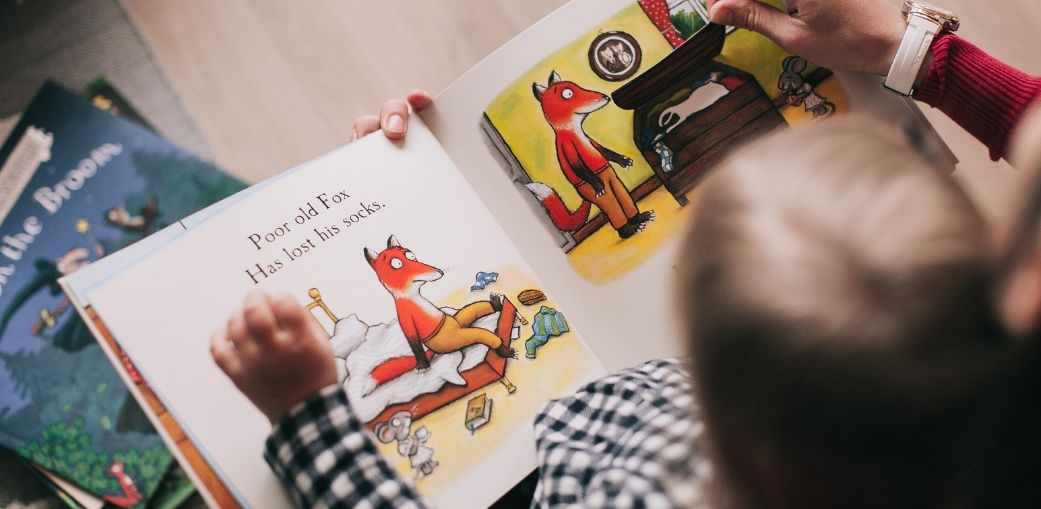It can be concerning when your child isn’t reaching the speech milestones their peers seem to be hitting. Learn how to determine whether your child is simply a late talker or if they may be showing early signs of a condition like autism.
You never forget the joy of hearing your child’s first words or the moment they call out to you for the first time. But what if those words don’t come when or how you expect them?
As communication is such a vital part of your child’s development, it’s natural to feel worried if your child isn’t meeting the usual age-appropriate speech milestones.
Most of the time, a speech delay isn’t cause for concern, and your child will catch up to their peers in their own time. However, sometimes it might be a sign of something else – like hearing problems, other developmental delays, or autism spectrum disorder (ASD).
Understanding the key signs and differences between a speech delay vs. autism will help you identify whether there is an underlying factor behind your child’s speech delay, and better equip you to support your child and make sure they get the help they need.
Education Alternatives in Ohio has been dedicated to helping students with unique learning needs thrive for over twenty years.
Our programs are tailored to meet each child where they are, whether that means providing support through our specialized autism program or partnering with outside therapy professionals, such as speech-language pathologists, to make sure every child’s individual needs are met.In this blog, we will break down what speech delays and autism are, how to tell the difference, and how interventions like speech therapy can help your child reach their fullest potential.
In this blog, we will break down what speech delays and autism are, how to tell the difference, and how interventions like speech therapy can help your child reach their fullest potential.

Understanding autism vs speech delay
Speech delays are a common trait among children with autism, and are often one of the earliest signs of autism. However, it’s important to realize that they aren’t solely an autism trait; they are also common in children without autism.
Speech delays are when children don’t develop the speech and language skills expected for their age group, like saying their first words or pronouncing words clearly.
For many children, these delays resolve naturally with time and the proper support. However, others may need additional help, such as speech therapy, to reach their age-appropriate speech milestones.
While children with speech delays have a more challenging time expressing themselves verbally, it doesn’t necessarily point to any larger developmental issue.
Autism, or autism spectrum disorder (ASD), on the other hand, is a neurodevelopmental condition that affects how a person communicates, interacts with others, and experiences the world around them.
Because autism is a “spectrum” condition, it can look very different from one child to another.
Some children may have mild challenges, while others may need significantly more support in their daily lives.
Other common autism traits include social and communication difficulties that make building healthy relationships more challenging. Children with autism may also engage in repetitive behaviors like repeated movements or have sensory sensitivities to sounds, textures, lights, or other sensory stimuli.
What causes a speech delay vs. autism?
A non-autism-related speech delay can happen for a variety of reasons, such as:
- Oral-motor problems: When a child has trouble using their lips, tongue, or jaw muscles to make the correct speech sounds.
- Hearing problems: If a child can’t hear clearly, it can be harder to understand, copy, and use words.
- Environmental factors: These may include a lack of exposure to conversations or language practice from a young age.
- Bilingual or multilingual environments: Some children raised in multilingual households may take longer to develop speech as they process multiple languages, though they often catch up and benefit from the exposure in the long run.
- No specific reason: Sometimes, there’s no clear reason why a child starts talking later than other kids. Everyone grows and learns at their own pace, and some kids just take a little longer to start using words.
Autism, on the other hand, is more complex. There is no one clear cause of autism, although scientists think it’s likely caused by a combination of genetic and environmental factors.
What are the early signs of autism?
While it’s often easy to spot the early signs of a speech delay by comparing your child’s speech skills to typical milestones for their age, identifying the early signs of autism can be more challenging.
Delayed speech is often one of the early signs of autism, however, autism can also affect children’s social skills, behavior, and how they interact with the world, meaning there are usually additional signs, beyond only speech, that point to autism.
Because it looks different in every child, the early autism signs can vary widely from one person to another. However, some of the most common early signs of autism in young children include:
- Avoiding eye contact
- Speech delays or delayed language development
- Repetitive movements
- Inability to understand other people’s feelings
- Discomfort in social situations
- Extreme or unusual reactions to sensory stimuli that don’t seem to affect others
Recognizing these early signs can help you better understand your child’s unique needs and seek support if necessary.
However, it’s important to remember that not all children with autism show the same signs, and some children may develop skills at a different pace than their peers.
In fact, many children with autism have no speech issues at all, as autism affects each child differently.
If you’re concerned, reaching out to a professional for evaluation is a good first step toward understanding and supporting your child.
Can an autistic child learn to speak “normally”?
The way autism affects speech development is different for every child.
Whether a child with autism can learn to speak “normally” or at the same level as kids their age depends on the child, how their autism affects them, and the support they receive.
Many children on the autism spectrum have no speech difficulties at all.
Others may develop strong communication skills over time with the right interventions, like speech therapy and consistent support at home and school.
However, some children may always find verbal communication challenging or remain non-verbal, using alternative communication methods instead.
It’s important to remember that communication can take many forms, and every child’s progress is unique.
When it comes to your child’s development, there really is no such thing as “normal” because everyone is so different.
Non-verbal autism signs to look out for
Children with non-verbal autism do not use words to communicate. For some, this may be temporary during early development, while for others, it can be a lifelong characteristic.
Children with minimally-verbal autism typically speak thirty or fewer words. Together, non-verbal and minimally-verbal individuals make up about 25-30% of children with autism.
In these cases, about 80-90% of parents with non-verbal autistic children report that they began to notice signs within the first year of their child’s life.
Early non-verbal autism signs in young children can include:
- Lack of interest in interacting with other children
- Not responding to their name by one year of age
- Relying on sounds or gestures to communicate
- Avoiding eye contact
- Not babbling by one year of age
If you notice these non-verbal autism signs in your young child, or really at any age, it is always a good idea to talk with a professional to make sure your child is receiving the support they need.
To fully understand the kind of support your child needs, let’s define the clear differences between speech delays vs. autism.
Late-talker vs. autism: how to know the difference
It can sometimes be hard to tell the difference between a speech delay and autism, but there are some important clues. Speech delays usually only affect how a child talks, while autism often affects communication, behavior, and how a child interacts with others.
Signs of a speech delay:
- Late talking: Taking longer to start speaking compared to other kids the same age
- Trouble saying words clearly: Problems with sounds, like having a lisp or mixing up sounds
- Simple sentences: Using short or simple sentences for their age
- No other learning or behavior problems: Kids with speech delays usually don’t have trouble understanding things, playing, or interacting with others—only their speech is delayed
Signs of autism:
- Social difficulties: Avoiding eye contact, not being interested in playing with others, or having trouble understanding facial expressions and social cues
- Speech challenges: Talking late, saying very few words, or not speaking at all. Some kids with autism might speak clearly but repeat the same words or use language in unusual ways
- Repetitive behaviors: Doing the same action over and over or getting upset when their routine changes
- Sensory issues: Being very sensitive to things like loud sounds, bright lights, or certain textures
- Learning or behavior challenges: Struggling with certain skills like playing, moving around, or solving problems
In general, children with speech delays usually catch up with time and support, while children with autism may need lifelong help and often show other differences, like difficulties with communication and social skills.
Thankfully, whether your child is simply a late-talker, has speech delays linked to other factors, or has autism, there are many treatments and forms of support available that can make a big difference.
How speech therapy can help both speech delays and autism
With the right support and encouragement, speech therapy can help children with speech delays of any kind to build their communication skills and reach their full potential.
For children with delayed speech, therapy focuses on teaching children how to form sounds, words, and sentences so they can express themselves clearly.
For children with autism, speech therapy can address their unique challenges like understanding social cues, improving nonverbal communication, and developing practical language skills.
With time and the right care, speech therapy helps children build confidence, connect with others, and thrive in their daily lives.
Finding the right support for children with speech delays or autism
At Education Alternatives, we understand the worries and challenges parents face when navigating any kind of developmental concern, from speech delays to autism spectrum disorder. That’s why we’re committed to providing the tools, resources, and expert support your child needs to succeed.
Integrating speech therapy into our programs is a vital part of how we help children improve their communication skills and build confidence. Whether through our specialized autism program or by partnering with speech-language pathologists, our mission is to meet the unique speech and communication needs of every one of our students.
If this sounds like the kind of support your child needs, contact us today!
Our team will be happy to answer any questions you may have about how we support children with autism and speech delays through our specialized programs at our eight Northeast Ohio locations.
Did you find this article helpful? Check out our other blogs to learn more about alternative education and find valuable resources for your family!
